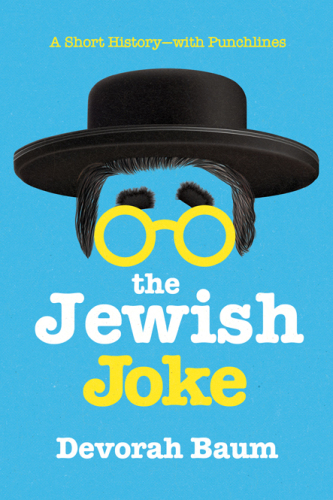
The Jewish Joke
- اطلاعات
- نقد و بررسی
- دیدگاه کاربران
نقد و بررسی

February 15, 2018
A compendium of jokes that reflect and create a sense of cultural identity.An affiliate of the Parkes Institute for the Study of Jewish/non-Jewish Relations, Baum (English Literature and Critical Theory/Univ. of Southampton; Feeling Jewish: A Book for Just About Anyone, 2017) brings thoughtful analysis to a lighthearted, appreciative, and very funny survey of Jewish humor. Each pithy chapter abounds with jokes: some "that illustrate the arguments of the essay" and others "that have no obvious place in the essay but were too good to leave out." The author begins each chapter with a question--e.g., "how do you tell the difference between a blessing and a curse? Jews, Baum asserts, can spot "the gloomier side of good news." One example: "May you become so rich that your wife's second husband never has to work a day in his life!" Much Jewish humor takes the perspective of the outsider and--like black humor--recognizes a history of oppression. As Jon Stewart put it: "We've come from the same history--two thousand years of persecution--we've just expressed our sufferings differently. Blacks developed the blues, Jews complained--we just never thought of putting it to music." The sentiment of many jokes, Baum writes, reiterates a theme: "if you start worrying now, history will be sure to prove you right." Take this terse rendering of "the traditional Jewish telegram: Start worrying. Details to follow." The author includes unattributed jokes that have been retold by generations (some featuring rabbis, Jewish mothers, and, of course, Jewish mothers-in-law) and newer jokes by contemporary comedians, including Woody Allen, Lenny Bruce, Sarah Silverman, Jackie Mason, Joan Rivers, Palestinian-Israeli writer Sayed Kashua, and Amy Schumer. Considering the debate "over whether Jewish jokes are battling anti-Semitism or are in fact forms of it," Baum admits that discerning the difference can be "slippery" and sometimes depends on whether a Jew or non-Jew is telling (or interpreting) the joke.Delightfully entertaining and cheerfully insightful.
COPYRIGHT(2018) Kirkus Reviews, ALL RIGHTS RESERVED.

March 26, 2018
Baum (Feeling Jewish), lecturer in English literature and critical theory at the University of Southampton, considers the history of Jewish humor in this cursory study. She begins with a brief exploration of humor within the Torah, recounting that the Zohar (“the foundational text of Jewish mysticism”) considered God’s command to Abraham to sacrifice Isaac “the biggest joke in the Hebrew Bible.” In an attempt to explain that bizarre assessment, she refers to the last-minute substitution of a ram for Isaac as a “classic switcheroo” that Abraham “really fell for,” and that showed God as “a prankster of the highest order.” She effectively considers the roles Jewish humor has played as a response to oppression and as a way to mock hypocrisy about religious observance, but other efforts aren’t as successful. For instance, her explanation of why Jackie Mason employed the simple repetition of the word “Jew” in his stand-up routine—because, for Mason and his audience, there isn’t “all that much of a difference between a Jew and a joke”—is insufficient. Her reliance on personages tainted by accusations of sexual misconduct (such as Woody Allen and Louis C.K.) also distracts from many of her points. Readers interested in Jewish wit will be better served by Jeremy Dauber’s Jewish Comedy or anthologies aiming just for laughs, such as The Big Book of Jewish Humor.

April 15, 2018
Baum (Feeling Jewish, 2017) traces the history of Jewish jokes and provides telling examples, mostly from well-known American Jewish comedians like Groucho Marx, Woody Allen, Larry David, Jerry Seinfeld, and Sarah Silverman. Baum attempts to pin down what makes a joke Jewish, other than obvious references to rabbis and synagogues. The melancholic and often existential undertones of popular and lasting Jewish jokes are pointed out. Specific jokes and routines are analyzed, not in an academic, scholarly way, but certainly in an intelligent one. For example, the old Groucho Marx saw about never wanting to belong to a club that would have him as a member, later echoed by Woody Allen's character Alvy in the opening monologue of Annie Hall, is discussed. The somber seems to inevitably shine through, as exemplified by Lena Dunham's recent line, over time, my belief in many things has wavered: marriage, the afterlife, Woody Allen. Through it all, The Jewish Joke manages to be light hearted, entertaining, and informative. Complete with an index, mostly of subjects and people. Recommended for all types of libraries.(Reprinted with permission of Booklist, copyright 2018, American Library Association.)




دیدگاه کاربران